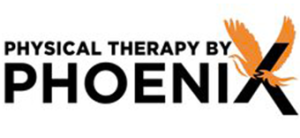Temporomandibular Joint (TMJ) Dysfunction Therapy

Have you ever had trouble opening your mouth or experienced pain when chewing? Or have you experienced a clicking sound when you move your jaw? If yes, you may suffer from temporomandibular joint (TMJ) dysfunction.
What is Temporomandibular Joint (TMJ) Dysfunction?
The temporomandibular joint links your lower jaw to your skull. It controls the movement of your jaw and is one of the most used joints in your body. When the joint is not working correctly, it can cause much pain and discomfort. The condition where the temporomandibular joint is not functioning correctly is called TMJ dysfunction.
What Causes TMJ Dysfunction?
TMJ dysfunction occurs when there is an imbalance in the muscles and ligaments that control the joint. The condition can be due to many reasons, such as:
- Arthritis
- Injury to the jaw or head
- The clenching or grinding of your teeth (bruxism)
- Stress
- Misaligned teeth
Women are more likely to suffer from TMJ dysfunction due to hormonal changes, such as during pregnancy or menopause. People with a family history of TMJ dysfunction are also at a higher risk. Our Wichita therapists can get to the root cause of your TMJ dysfunction and help alleviate your pain.
What Are the Symptoms of TMJ Dysfunction?
The most prevalent symptom is a pain in the jaw. The pain can be a dull ache or a sharp pain. Other symptoms include:
- Difficulty chewing any food
- A clicking/popping sound when you move your jaw.
- Jaw-locking
- Pain in the face, neck, or shoulders.
- Headaches with dizziness.
- Ear pain or a ringing in the ears (tinnitus)
Remember, the symptoms and intensity of pain can vary from person to person.
How is TMJ Dysfunction Treated?
The treatment for TMJ dysfunction will vary depending on the cause and severity of the condition. In some cases, over-the-counter pain medication and ice packs can help to relieve the pain. However, if the symptoms do not improve with home treatment or seem to aggravate, you must look for “physical therapy near me” in Wichita.
Why is Physical Therapy Recommended for TMJ Dysfunction?
Physical therapy is widely used for TMJ dysfunction because,
- It relieves the pain
- Improves the function of the joint.
- Prevents the condition from getting worse.
Wichita’s Physical Therapy by Phoenix physical therapists are well-trained in assessing and treating TMJ Dysfunction. The treatments may include:
- Manual Therapy: involves massaging the joint’s muscles and tissues to help reduce pain and inflammation. Manual therapy methods like soft tissue massage and joint mobilization can increase the range of motion in the jaw.
- Exercises: Specific exercises can help to stretch and strengthen the muscles around the joint. The exercises improve the function of the joint and reduce pain.
- Trigger Point Dry Needling: Dry needling therapy in Wichita is a treatment that involves inserting thin needles into the muscles to release muscle knots (trigger points). It is an effective pain-relieving technique.
- Electrical Stimulation: The therapy uses electrical impulses to relax the muscles. It can also reduce pain to a certain extent.
Give Wichita’s Physical Therapy by Phoenix a Call & Find Out More
At Physical Therapy by Phoenix, our team of expert physical therapists is well-experienced in treating TMJ dysfunction. Choose Physical Therapy by Phoenix to help you with the condition and experience long-term pain relief. Our Wichita team will help you get the best possible care and treatment. Call to book an appointment. For more information, please connect through (316) 260-3311.
